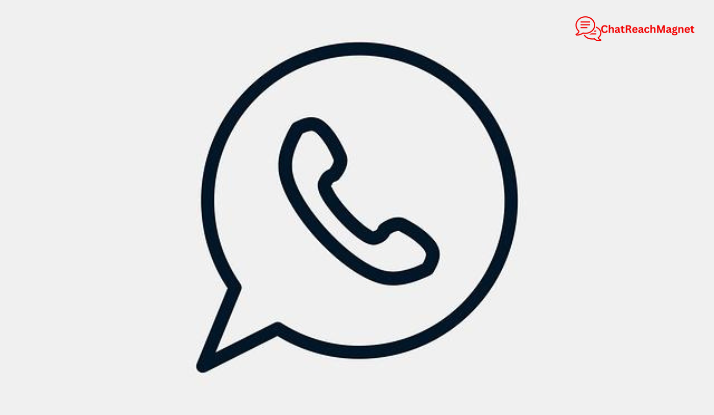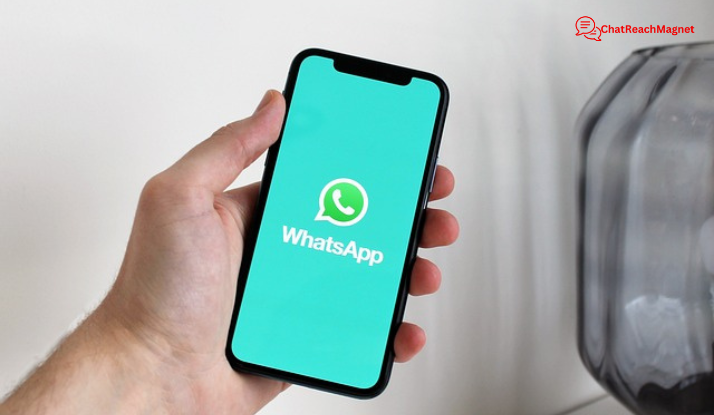The Importance of WhatsApp Advertising to Reach Your Audience Effectively in Today’s Market
You’re walking down a bustling street, surrounded by a cacophony of sounds, flashing billboards, and endless storefronts vying for your attention.
Now, imagine instead of shouting over this noise, a friendly voice quietly calls you over, inviting you to have a personalised conversation about exactly what you need. This is the essence of WhatsApp advertising in today’s market.
Having it at the back of your mind that where consumers are inundated with generic ads and impersonal marketing messages, WhatsApp stands out as a beacon of personalisation and direct engagement.
With its expansive user base and conversational nature, WhatsApp offers a unique platform for businesses to forge meaningful connections with their audience. It’s not just about broadcasting messages; it’s about creating dialogues that resonate on a personal level.
In the upcoming chapter, I’ll walk you through the significance of WhatsApp advertising. We’ll explore how this tool can transform your approach to reaching and engaging your target audience, cutting through the digital noise to deliver messages that truly matter.
What is WhatsApp Advertising?

The popular messaging app WhatsApp is utilized for advertising to connect with users in a more personal way, completely different from traditional ads. Pick out messages consisting of promotions, updates, or personalized content can be sent directly to users by businesses.
The WhatsApp Business app helps immensly in setting up a profile, automatically giving replies, and managing conversations. Features like automated replies, chatbots, and rich media content (images, videos) make the ads engaging.
Many businesses have embraced WhatsApp into their marketing strategies and utilize it to divide audiences for targeted messaging. Adhering to privacy laws and monitoring performance metrics are also crucial elements of successful WhatsApp advertising.
How Does WhatsApp Advertising Differ From Viral Advertising?
The methods and objectives of WhatsApp advertising and viral advertising are distinct. WhatsApp advertising involves personalized messaging within the app to engage specific users, fostering individual connections and real-time interactions.
In contrast, viral advertising aims to generate captivating content that spreads quickly across social media and other platforms, reaching a broad audience through shares and likes.
While WhatsApp advertising prioritizes targeted, one-to-one communication and relationship-building, viral advertising aims for widespread visibility and brand awareness through shareable content. Each approach serves different purposes and can be effective based on the desired outcome.
Why Is WhatsApp Advertising So Important?
WhatsApp advertising holds significant importance in today’s marketing landscape for several key reasons:
#1.Engaging Directly: Businesses can use WhatsApp to directly and personally communicate with their audience, providing a platform for more individualized engagement.
Unlike conventional advertising methods that involve mass messaging, WhatsApp enables one-on-one interactions, allowing for tailored messages to meet specific needs and preferences.
This personalized approach fosters a stronger sense of connection with customers, helping to build and maintain meaningful relationships.
#2. Elevated User Involvement: WhatsApp enjoys high user engagement, with more than 2 billion active users worldwide. The platform’s users regularly check their messages, increasing the chances of ads being noticed and prompting action.
With such an engaged user base, businesses have a greater opportunity to effectively reach their target audience and make their messages stand out in the crowded digital landscape.
#3. Personalisation: Utilizing customer data allows businesses to customize messages on WhatsApp advertising to match individual interests, purchase history, or location, giving them a significant advantage in personalization.
Tailoring advertisements in this way increases their relevance and engagement by catering to the specific needs and preferences of the recipients.
Users are more likely to connect with targeted messages, resulting in increased engagement and conversion rates.
#4. Rich Media Content: WhatsApp supports various forms of rich media content, including images, videos, and audio messages. This multimedia capability allows businesses to create more engaging and visually appealing advertisements.
Rich media content has a greater ability to hold consumers’ attention than plain text, which makes it simpler to explain complicated ideas or present goods in an engaging manner.
#5. Customer Care: WhatsApp advertising goes beyond just promotional messaging by allowing businesses to offer real-time customer support. Using the platform, businesses can promptly address customer inquiries, resolve issues, and provide assistance.
This instant support enhances the customer experience, improves satisfaction, and can lead to increased loyalty and positive word-of-mouth referrals.
#6. Combining Different Channels for Integration: WhatsApp advertising can be seamlessly integrated with other marketing channels, such as social media, email, and websites.
For example, businesses can promote their WhatsApp contact number on their social media profiles or include it in email campaigns to drive traffic and encourage users to connect.
This integration helps create a cohesive marketing strategy, ensuring that messaging is consistent across different platforms and amplifying overall reach.
#7. Privacy and Trust: Respecting user privacy is crucial in digital advertising, and WhatsApp advertising ensures this by obtaining user consent before sending promotional messages.
Adhering to privacy laws, businesses must offer opt-out options for users and uphold user preferences.
This commitment to respecting user choices contributes to building trust and credibility, as customers value transparency and control over the messages they receive.
#8. Performance Tracking: WhatsApp advertising also offers the advantage of performance tracking. Businesses can monitor key metrics such as message delivery rates, open rates, and user interactions.
This data provides valuable insights into the effectiveness of advertising campaigns, allowing businesses to measure success, identify areas for improvement, and refine their strategies for better results.
How can you leverage WhatsApp Advertising?

Starting with setting up a WhatsApp Business account is key to effectively utilizing WhatsApp advertising, as this type of account provides specific features designed for businesses. It’s important to establish a professional business profile containing essential information to boost credibility.
Send users customized offers, updates, and promotions directly based on their interests and choices by using targeted messaging. Make use of rich media assets, including pictures and videos, to enhance the visual appeal and engagement of your messaging.
Integrate automated replies and chatbots to manage customer queries and offer timely assistance. Advertise your WhatsApp number on various marketing platforms to increase engagement and attract visitors.
Divide your audience into segments to send more targeted and effective communications. Monitor delivery and open rates to assess the performance of your strategies and make improvements as needed.
Ensure compliance with privacy regulations by obtaining user consent and offering opt-out options. Integrating WhatsApp advertising with your overall marketing strategy helps create a cohesive and effective approach to reaching your audience.
What are the factors that initiate advertising on WhatsApp?
Initiating advertising on WhatsApp involves several key factors:
#1. Business Objectives: Establish specific goals for your WhatsApp advertising, such as boosting brand recognition, generating sales, or improving customer interaction.
Having clear objectives will enable you to customize your strategy and evaluate your accomplishments.
#2. Audience Understanding: Identify and understand your target audience. Gather insights on their preferences, interests, and behaviours to craft relevant and engaging messages that resonate with them.
#3. WhatsApp Business Account: Set up a WhatsApp Business account, which offers features designed for commercial use, such as business profiles, automated responses, and catalogues. This account is essential for managing advertising efforts.
#4. Content Strategy: Develop a content strategy that includes promotional messages, updates, and multimedia content. Ensure your content is engaging, visually appealing, and aligned with your advertising goals.
#5. Customer Segmentation: Divide your target audience based on specifications like location, interests, or purchase history.
This segmentation allows for more targeted and personalised messaging, improving the effectiveness of your campaigns.
#6. Compliance with Privacy Regulations: Make sure you work in accordance with privacy laws and obtain user consent before sending promotional messages.
Respect user preferences by providing opt-out options to maintain trust and avoid legal issues.
#7. Integration with Other Channels: Integrate WhatsApp with your broader marketing strategy.
Promote your WhatsApp contact number through social media, email campaigns, and your website to drive traffic and encourage user engagement.
#8. Use of Automation Tools: Implement automation tools like chatbots and automated responses to handle customer interactions efficiently. This helps provide timely support and maintain consistent communication.
#9. Performance Tracking: Take notice of key metrics such as message delivery rates, open rates, and user interactions. Tracking performance helps you assess the effectiveness of your campaigns and make data-driven improvements.
#10. Budget and Resources: Allocate a budget and resources for your WhatsApp advertising efforts. Consider costs for content creation, automation tools, and any additional marketing activities needed to support your campaigns.
Why Is WhatsApp Advertising Important In Today’s Marketplace?

WhatsApp advertising holds significant value in today’s marketplace due to its capacity for direct and personal communication. Unlike many traditional advertising channels that broadcast messages to a broad audience, WhatsApp allows businesses to engage with users on a one-to-one basis. This direct interaction fosters a more personal connection, making it easier to address individual needs and preferences. The platform’s personal touch helps in building stronger customer relationships and improving overall engagement with the brand.
The fact that WhatsApp has a large user base adds to its importance. Businesses have a fantastic opportunity to make sure their adverts are noticed and interacted with, as billions of active consumers routinely check their messages. WhatsApp’s messaging system ensures that advertisements will be seen more frequently than on other platforms where messages may get lost in the noise. Because of this high engagement rate, businesses have a higher chance of achieving their advertising objectives, be it lead generation, sales, or brand exposure.
Customization is yet another important benefit of WhatsApp marketing. Businesses may customise their messaging for customers based on their purchase history, preferences, and other pertinent information thanks to the platform. With this degree of personalization, the ads are more impactful and relevant, which raises engagement rates and boosts client happiness. In comparison to plain text, rich media content—images, videos, and audio messages—enhances this effect by giving the advertisements a more eye-catching and captivating visual.
WhatsApp provides tools for real-time customer support, which is essential for maintaining high levels of customer satisfaction. Businesses can quickly address inquiries, resolve issues, and offer assistance through instant messaging. Integration with other marketing channels ensures a cohesive strategy, while compliance with privacy regulations builds trust and credibility. Performance tracking features allow businesses to monitor the effectiveness of their campaigns and make data-driven adjustments. Overall, WhatsApp’s unique combination of features makes it a powerful tool for reaching and engaging with audiences effectively.
How Can Companies Make The Most Of WhatsApp Advertising To Strengthen Their Marketing Campaigns?
In order to fully realize the potential of WhatsApp advertising and bolster marketing initiatives, businesses should take a multipronged approach that makes use of WhatsApp Business’s special capabilities and incorporates engagement best practices.
Here’s a detailed exploration of strategies to make the most of WhatsApp advertising:
#1. Outline a Comprehensive Strategy
Businesses should have a clear plan in place before launching a WhatsApp advertising campaign to ensure that it supports their overarching marketing objectives. This entails setting goals like raising sales, generating leads, or raising brand awareness.
Having a well-organized plan will facilitate the creation of pertinent content, the setup of pertinent campaigns, and the assessment of success. To ensure that your ads resonate with potential clients, it is important to understand the needs and preferences of your audience. This will lead the development of focused communications.
#2. Leverage Business Profile Features
The WhatsApp Business app allows companies to create a detailed business profile, including essential information like address, contact details, website links, and business hours.
A complete and well-presented profile enhances credibility and makes it easier for customers to find and connect with the business. Additionally, using the profile to showcase unique selling points or promotional offers can attract potential customers and provide a professional image.
#3. Use Automated Messaging
Automated responses are a key feature for maintaining effective communication with customers. Setting up automated greetings, away messages, and quick replies ensures that customers receive timely responses, even outside regular business hours.
Automated greetings can welcome new contacts and set the stage for future interactions, while away messages manage customer expectations when immediate responses aren’t possible.
Quick replies streamline communication by providing predefined answers to common queries, improving efficiency and customer satisfaction.
#4. Organise Interactions with Labels
Effective management of customer interactions is crucial for maintaining a high level of service. WhatsApp’s label feature allows businesses to organise chats and contacts into categories, such as leads, ongoing conversations, or follow-ups.
This system helps in tracking customer interactions, ensuring no inquiry is overlooked, and managing communication more systematically.
Businesses can improve the overall success of their campaigns by customizing their replies and marketing initiatives to certain client segments through the categorization of interactions.
#5. Showcase Products with Catalogues
The catalogues feature enables businesses to display their products or services directly within the WhatsApp app. This functionality allows customers to browse offerings without leaving the platform, making the purchasing process more seamless.
High-quality images, detailed descriptions, and clear pricing information in catalogues can drive interest and facilitate easier decision-making. Regular updates to the catalogue ensure that customers are informed about new arrivals and promotions.
Getting Started with WhatsApp Advertising
If you’re ready to explore WhatsApp advertising for your business, follow these steps to get started:
#1. Download WhatsApp Business: Install the WhatsApp Business app and set up your profile with relevant information about your business.
#2. Build Your Contact List: Collect customer phone numbers and encourage them to connect with your business on WhatsApp. Promote your WhatsApp number through your marketing channels.
#3. Create a Content Plan: Develop a content plan that outlines your messaging strategy, including promotions, updates, and customer support.
#4. Monitor and Optimise: Regularly review your campaign performance and make adjustments based on the data. Continuously refine your approach to improve results.
Conclusion
Businesses have a special chance to interact more effectively and personally with their audience with WhatsApp advertising.
You may improve client relationships, increase engagement, and accomplish your marketing objectives by utilizing WhatsApp’s features, developing focused campaigns, and incorporating the app with the rest of your marketing plan.
Keeping up with trends and adopting cutting-edge tools like WhatsApp will be essential to staying competitive and successfully reaching your audience as the digital landscape continues to change.

